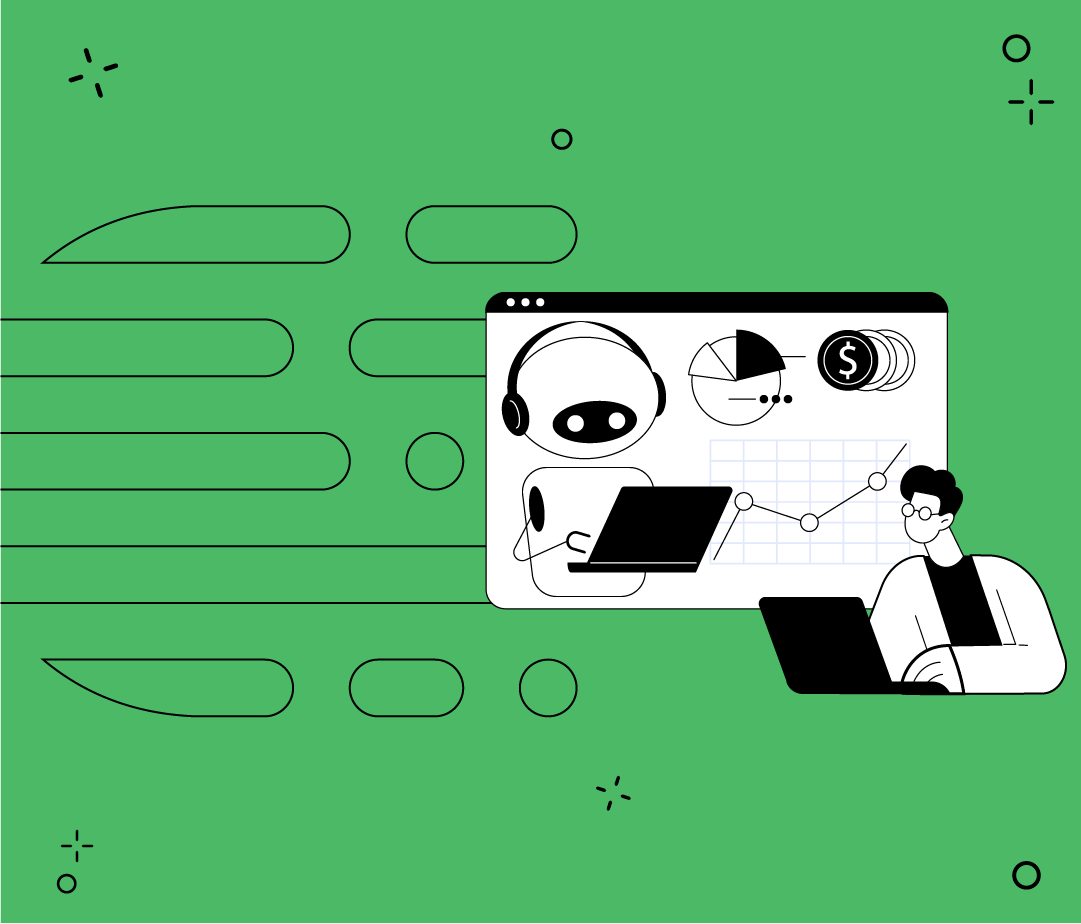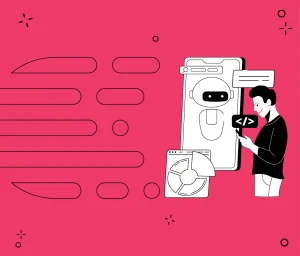Today, companies can transfer part of their daily operations to Artificial Intelligence Agents—smart systems capable of analyzing, deciding, and executing tasks. These new digital assistants don’t just automate processes: they reason, learn, and act without constant supervision.
In many organizations, they already manage operations, review code, and handle customer service with an efficiency that human teams simply can’t match.
And the trend is accelerating. Recent studies show that up to 30% of human tasks can now be delegated to AI Agents. Additionally, Gartner estimates that 40% of enterprise applications will incorporate this technology by 2026.
The real question is no longer what AI can do, but what it should do for your business.
What Are AI Agents?
AI Agents are programs that combine artificial intelligence, automation, and autonomous reasoning. Unlike chatbots or automation flows, they perceive their environment, make decisions, and take action.
An agent can analyze data, hold conversations, integrate with systems, and learn from results. For example, a Conversational Agent doesn’t just respond—it also generates leads and classifies requests. A Code Review Agent doesn’t detect bugs based on fixed rules, but reasons through context and best practices.

Use Cases: Where Can AI Agents Be Implemented?
1. Customer Service and User Experience
Support is one of the first areas transformed by AI Agents. According to McKinsey (2025), 60% of first-level interactions can now be resolved without human intervention.
Agents handle queries, validate information, recommend products, and escalate complex cases. Plus, they work 24/7 with consistent accuracy. As a result, human teams can focus on empathy and high-value personalization.
2. Software Development and Quality Control
AI is also changing how software is built. Today, development teams use Code Review Agents to analyze each line of code, detect vulnerabilities, and suggest improvements before deployment.
3. Operations, Analytics, and Internal Processes
AI Agents are also being integrated into backoffice, logistics, and administrative areas. They focus on automating tasks, monitoring, and controlling processes-such as document and record validation, inventory and quality tracking, and real time KPI monitoring.
Moreover, agents detect anomalies and take preventive action without the need for constant supervision, giving companies more agility and traceability.
Try a Free Demo of a Conversational AI Agent!
At Crombie, we implement Generative AI solutions that deliver measurable results in under 30 days.
What Tasks Can’t Be Delegated Yet?
Despite their accuracy, AI Agents still can’t replace human judgment. Strategic decisions, creativity, and leadership remain strictly human responsibilities.
Agents lack ethical judgment and deep contextual understanding. Therefore, they must always operate within a framework of supervision and control.
Delegating doesn’t mean disengaging. The ideal model is hybrid: AI executes, humans supervise, and optimize.
Their Inevitable Impact on Business
AI Agents don’t eliminate jobs—they transform them. They reduce operational load and enhance people’s strategic capacity. Companies adopting agentive AI report improvements in productivity and internal satisfaction. The focus shifts from doing tasks to designing how tasks are done.
Delegating tasks to AI Agents isn’t a trend—it’s an inevitable evolution. The companies that learn to combine human intelligence with artificial autonomy will be the most resilient and productive.
Try a Free Demo of a Conversational AI Agent!
At Crombie, we implement Generative AI solutions that deliver measurable results in under 30 days.







0 comments
·
3 min Read